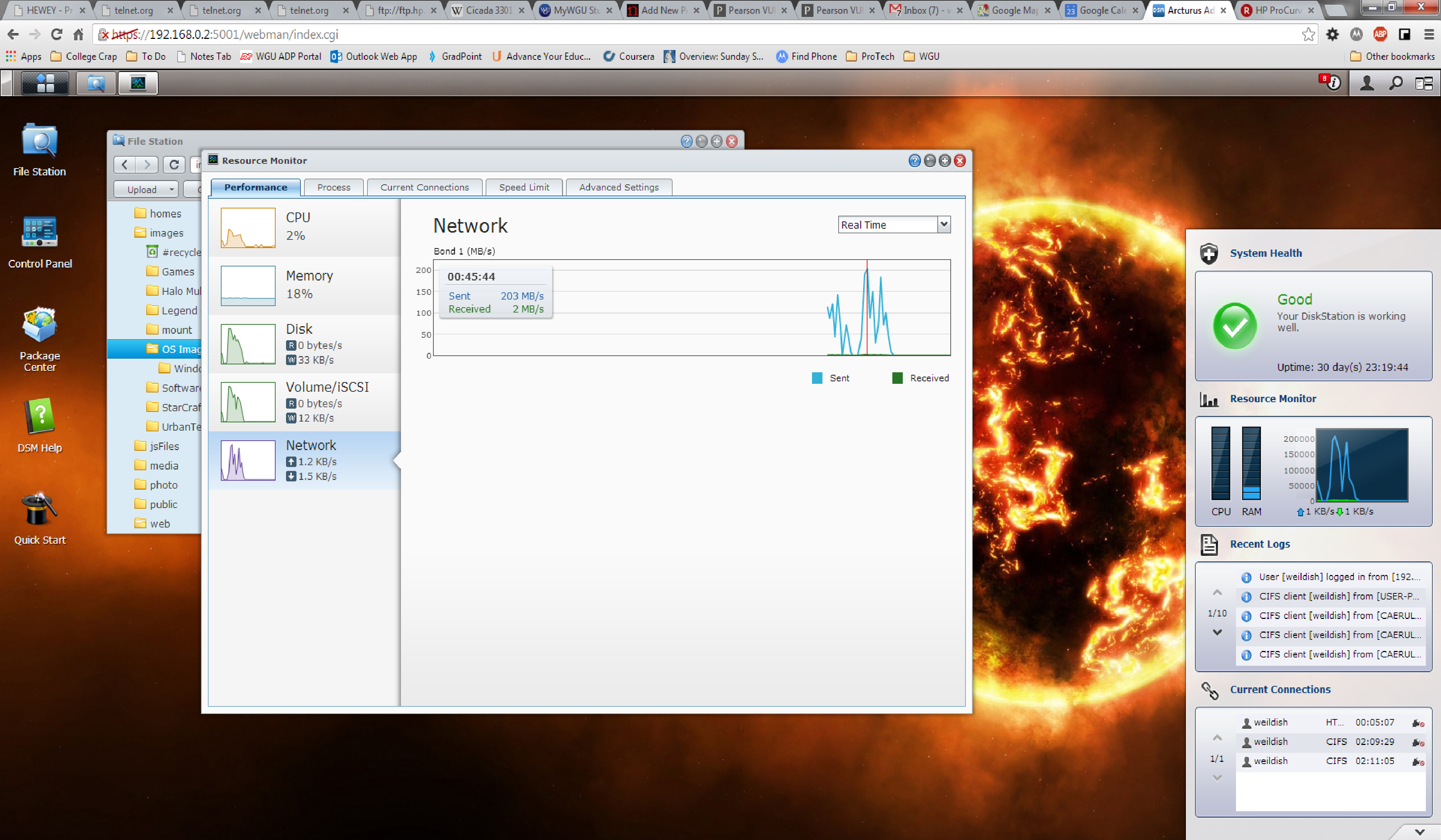Note: ISP stands for “Internet Service Provider”.
All ISPs are evil. Finding the least evil ISP is the trick. It’s the same principle as picking a new president or congressman or choosing a cell phone service. You need to carefully weigh the pros and cons of all the available connections in the area where you live, find out the promotional and regular-after-12-month price for the tier you’re looking for, check for hidden fees they don’t tell you about until later, consult your own past experience, read reviews from others in the area, and just hope and pray you actually get what you’re paying for. It’s half research and half luck, to be quite honest: your next door neighbor may absolutely abhor his Comcast service for extremely justifiable reasons, but you may be extremely happy with what you’ve got because your service and experience have been completely different than his.
A Bit of History
Aside from the few adventures I had on the awful “blueberry” Macs in elementary school or the PCs at the public library, my first experience with the internet happened at home in the early 2000s, and it consisted of the fifteen free hours of dialup a month offered to us by an archaic email service known as Juno whose programs were installed via floppy disk. Juno has miraculously survived the past two decades and still offers dial-up services, though the growth of our technology needs soon surpassed what Juno was willing to give us.
Eventually we were graced with Qwest service, now an acquired and nonexistent company that grew into a monstrosity through ties with the Union Pacific Railroad; Qwest ingested USWEST, which is a long-dead company that grew from the Mountain Telephone & Telegraph Company, which was a subsidiary of the once-monopolistic “Ma Bell”, or American Telephone & Telegraph Company– AT&T. AT&T and its predecessor, Bell Telephone Company, are the ancestors of most telecommunications companies in the United States and even some internationally, Qwest being just one of many. Back to the subject, though: Qwest was a monstrosity not only in its size but also in its awful service. I remember losing internet connectivity every time it rained, and our service was slow and unsteady. Thankfully, Qwest was ingested by CenturyLink during my two years living in Arizona, and I came home to find our service faster and 100% reliable for less than we paid Qwest previously. Still, with this long history of monopolistic behavior and agressive buy-outs and takeovers (only a fraction of which is outlined above), it’s easy to see how all communications services end up turning evil regardless of first intentions; though I have not had any complaints about CenturyLink, it’s easy to find plenty of customer gripes with a quick Google search.
The Search Begins
Now that I am preparing to truly begin my own life, I have to start looking for the best ways to truly take care of myself: finding a better job is second only to finding quality internet service. Last night, I lost some sleep researching the best ISPs in the Salt Lake Valley, silently cursing Google for choosing Provo as their first Google Fiber project in Utah instead of the Salt Lake Valley (honestly– where are you going to get more money? A college town full of hand-holding hooligans who make their wages at Sonic, or a vast land of possibilities populated with established households and businesses galore?). Here are the two I have settled upon and compiled with pros and cons:
- Utopia— An acronym for the Utah Telecommunications Open Infrastructure Agency, this is a not-for-profit network that, like Google Fiber, provides residential speeds up to 1Gbps down/up for a similar cost. Unlike most ISPs, the infrastructure is funded by participating cities, so currently not even all cities in the Salt Lake Valley participate (including Salt Lake City). The user also must pay for the line to be brought to his or her residence or business either up front ($3000 or so) or via monthly payments ($25 to $30 a month for 10-20 years, or on a lease contract of $30 a month for two years, then ubiquitous monthly payments if you continue to live at the residence after that). In addition, Utopia is only an infrastructure, meaning that you still need to pay an ISP for service. Thankfully, there are a handful of local ISPs in Utah that provide competitive service ranging from $35 a month to $70 a month for 100Mbps to 1000Mbps connections (internet only– no packages). Upon request, a static IP address will be included at no additional charge, which is great news for someone like me who runs a server on his connection. If you own your home and plan to live there for a long time or forever, this is a great deal if you can afford the upfront $3000 cost to install the line to your residence or you want to pay $30 a month in addition to your ISP charges. Rentals and apartments are most likely a no-go unless the owner decides to install it, and then you’ll be paying the owner a little extra anyway for all of this. Through my research and friends’ experiences, Xmission may be the best Utopia ISP in Utah. All of the Utopia ISPs are local, of course, so you’re less likely to run into as much corporate stupidity and evil as you’re bound to find via the incumbent services like Comcast.
Utopia sounds great to me, and it’s worth $70 a month since I’m running a web/backup/&tc server on my residential connection as it is. I have dreams of paying a botnet to run a DDoS attack through a gigabit connection on my server just to see how it would handle it. However, it’s nigh on impossible to find Utopia available in an apartment, and I know it’s not available in the apartment complex where we’re planning to move, so we’ll have to scratch this idea for a few years until we buy our own home– that is, unless the owner of said apartments wants to install it (not likely). Drats.
- CenturyLink— As outlined previously, CenturyLink’s family line has a long, evil, monopolistic history that would keep anyone wary of its services. It’s one of the several major ISPs in the western United States, competing with the likes of Comcast and Cox, meaning its competitors, especially Comcast, are just as if not more evil. There are plenty of online gripes, and I know at least two or three people personally who have hatred toward CenturyLink’s lack of quality and consistency. However, as stated previously, since CenturyLink gobbled up Qwest, our service has actually improved; I’ve had nothing at all to complain about. Though incomparable to Utopia price/speed ratio, CenturyLink has the best I’ve been able to find, and it’s available at the apartment we plan to move into: $34.95 per month for one year for 40Mbps down/20Mbps up (a $5/month charge is applied for jacking up the upload speed to 20Mbps), thereafter hiking up to $75/month (including the $5 upload speed charge) forever after that, though my mama has infiltrated their system and is currently paying $20 less than she normally would have been, so I have hopes of doing the same. Static IP addresses cost an additional $5 per month, which is actually reasonable when compared to Comcast’s $65 per month for just a stinking static IP address.
Though I’d be paying much more than I really want to for the speed I’m getting, outside of Utopia, CenturyLink is the least evil ISP I can find in this area. They offer faster speeds than Comcast for cheaper: For only the first six months, Comcast will allow you a petty 25Mbps download (not sure on upload) connection for $29.99 per month, thereafter jacked up to $64.99. A 50Mbps connection will cost you $76.95 per month. You can even get a 105Mbps line, but that’ll run you $114.95 per month– over one and a half times more expensive than Utopia’s 100Mbps line and still around $15 more expensive than Utopia’s 1Gbps (1000Mbps) line. In addition to that, I have never heard a positive experience about Comcast. Ever.
All in all, I will suffer with CenturyLink’s 40Mbps for at least a year as $34.95 is reasonable. After that, I may continue, though $70-$75 per month for a sub-par connection really isn’t worth it in my mind; I will probably threaten to go to Comcast’s 50Mbps deal if they don’t offer me another cheap run, and hopefully they will so as to keep a customer. As soon as we buy a house, though, we’ll be laying down the $3000 to buy our own Utopia line, and then we’ll be sitting pretty paying only $65 a month for an Xmission 1Gbps line. Glory if I ever saw it.




